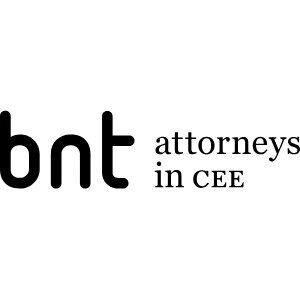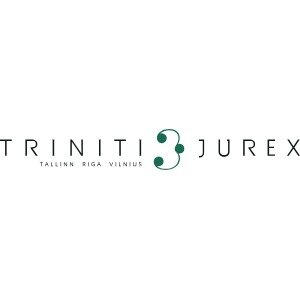Best Tax Increment Financing Lawyers in Estonia
Share your needs with us, get contacted by law firms.
Free. Takes 2 min.
Or refine your search by selecting a city:
List of the best lawyers in Estonia
About Tax Increment Financing Law in Estonia
Tax Increment Financing (TIF) is a public financing method used for subsidizing redevelopment, infrastructure, and other community-improvement projects in Estonia. The primary concept involves capturing future tax benefits of increased property values to finance the present-day improvements that will generate those benefits. In Estonia, TIF is increasingly utilized to encourage urban development in both small towns and large cities, focusing on modernization and enhancing economic growth.
Why You May Need a Lawyer
Engaging a lawyer for Tax Increment Financing in Estonia may be necessary in numerous situations, including:
- Navigating complex legal and regulatory frameworks that govern TIF projects.
- Negotiating terms with local governments or developers involved in the TIF agreement.
- Ensuring compliance with Estonian tax laws and understanding tax implications for involved parties.
- Addressing potential challenges from stakeholders or the public.
- Seeking legal advice on disputes or litigation arising from TIF projects.
Local Laws Overview
In Estonia, the legal frameworks relevant to Tax Increment Financing are influenced by local government regulations that focus on urban development and municipal finance. Key aspects include:
- Local Development Plans: Govern the use of TIF to ensure alignment with community and regional development goals.
- Financial Regulations: Determine how TIF funds can be allocated, managed, and reported.
- Public-Private Partnership Laws: Facilitate collaborations between government entities and private investors involved in TIF projects.
- Transparency and Accountability Requirements: Ensure activities and financial transactions associated with TIF projects are transparent and accountable to stakeholders.
Frequently Asked Questions
What is the purpose of Tax Increment Financing?
TIF is designed to stimulate economic development by redirecting future tax revenues from a particular area to fund infrastructure and improvement projects that will enhance property values.
Who can benefit from TIF?
Various parties benefit from TIF, including local governments, developers, businesses, and community members through improved infrastructure, increased economic activity, and job creation.
Are there any risks associated with TIF projects?
Yes, risks may include underestimated project costs, overreliance on projected tax increments, and potential opposition from the public or stakeholders if the project fails to deliver expected outcomes.
How is TIF implemented in Estonia?
TIF in Estonia is typically implemented through a collaboration between local governments and developers, following a detailed planning and approval process that adheres to national and regional regulations.
What kind of projects can be funded through TIF?
TIF can fund a variety of projects, such as infrastructure improvements, urban redevelopment, public facilities, and community enhancements that are believed to increase property values.
How are TIF funds generated?
TIF funds are generated through the increased property tax revenues from the higher property values resulting from the completed redevelopment projects.
Can TIF be used to finance projects in rural areas?
While TIF is mostly used in urban settings, it can potentially be applied to rural areas if the projects meet criteria that benefit regional development objectives.
How long do TIF districts typically last?
The lifespan of a TIF district in Estonia can vary, but they are usually established for periods that align with project timelines, typically ranging from 15 to 30 years.
Is public approval required for TIF projects?
Public involvement and approval can be integral to the TIF process, ensuring that projects align with community interests and development goals.
What happens after a TIF district expires?
After expiration, tax revenues that were previously earmarked for TIF projects revert to normal distribution among various local government services.
Additional Resources
Those interested in learning more about Tax Increment Financing in Estonia may find the following resources helpful:
- Ministry of Finance of Estonia: Offers guidelines and regulations related to municipal finance, including TIF.
- Estonian Chamber of Commerce and Industry: Provides insights into development projects and business regulations.
- Local municipal offices: Often have specific information and contacts for residents interested in local TIF projects.
Next Steps
If you are seeking legal assistance with Tax Increment Financing in Estonia, consider the following steps:
- Research and contact law firms with expertise in tax law and urban development.
- Consult with professionals who have experience with successful TIF projects.
- Attend informational seminars or workshops hosted by relevant Estonian government bodies or industry organizations.
- Gather all necessary project details and legal documents before meeting with your legal advisor for a thorough review and guidance.
Lawzana helps you find the best lawyers and law firms in Estonia through a curated and pre-screened list of qualified legal professionals. Our platform offers rankings and detailed profiles of attorneys and law firms, allowing you to compare based on practice areas, including Tax Increment Financing, experience, and client feedback.
Each profile includes a description of the firm's areas of practice, client reviews, team members and partners, year of establishment, spoken languages, office locations, contact information, social media presence, and any published articles or resources. Most firms on our platform speak English and are experienced in both local and international legal matters.
Get a quote from top-rated law firms in Estonia — quickly, securely, and without unnecessary hassle.
Disclaimer:
The information provided on this page is for general informational purposes only and does not constitute legal advice. While we strive to ensure the accuracy and relevance of the content, legal information may change over time, and interpretations of the law can vary. You should always consult with a qualified legal professional for advice specific to your situation.
We disclaim all liability for actions taken or not taken based on the content of this page. If you believe any information is incorrect or outdated, please contact us, and we will review and update it where appropriate.
Browse tax increment financing law firms by city in Estonia
Refine your search by selecting a city.














